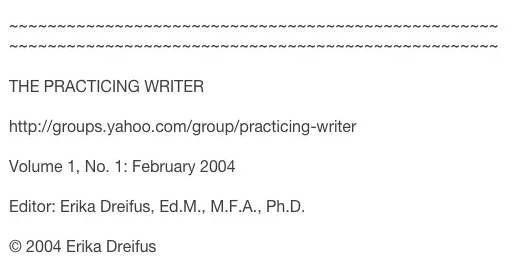The Practicing Writer 2.0: February 2023
Entering our TWENTIETH YEAR of service to writers and literary communities.
Welcome, new readers, and welcome back to the regulars!
For updates and additional opportunities between newsletters, please check the “Practicing Writing” blog and follow Erika Dreifus on Twitter (@E…
Keep reading with a 7-day free trial
Subscribe to The Practicing Writer 2.0: A Newsletter from Erika Dreifus to keep reading this post and get 7 days of free access to the full post archives.



